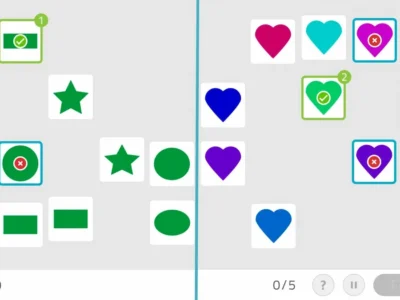Alzheimer’s disease is relentless. It advances without mercy while we wait for a miraculous drug to pull us out of that nightmare. But drugs with such power, at best, may not reach the market for many years. And current medications leave most people far from satisfied.
What to do? Stand by idly while patients’ quality of life declines? If we look, there are more optimistic answers, strategies that will enrich our professional role: there is cognitive rehabilitation for people with Alzheimer’s.
At NeuronUP there is no doubt about the benefits of non-pharmacological therapies (NPT)—the category that includes cognitive rehabilitation—for people who suffer from neurodegenerative diseases such as Alzheimer’s, Parkinson’s or Huntington’s disease. The conviction is not empty; it is based on scientific evidence that supports the use of NPTs in these groups. It not only improves cognition, but also mood. (Olazarán et al. 2010).
Rehabilitation and Alzheimer’s: a necessity
Alzheimer’s disease is best known for the progressive decline of the memory. But that is only the initial symptom. Gradually all cognitive functioning will be affected and processes such as the language, attention, visuospatial skills or executive functioning will experience marked deterioration.
This decline in cognitive functioning is faithfully reflected in the person’s daily life, who also progressively sees their abilities to cope with everyday challenges fade. From forgetting a random word to being unable to feed yourself, only a few years may pass.
Rehabilitation is a response to the needs of a patient population that worldwide already exceeds 50 million. Its objective is to help people with functional impairments reach an “optimal level of physical, psychological and social functioning” (McLellan, 1991 cited in Clare L, Woods RT, Cook, Orrell M y Spector A, 2003). In people with Alzheimer’s the meaning of optimal varies greatly from one stage to another, but there are goals and cognitive rehabilitation seeks precisely to ensure the patient attains the best possible level of functioning, according to their own abilities.
Cognitive rehabilitation for people with Alzheimer’s? Yes!
Yes, cognitive rehabilitation can be carried out in people with Alzheimer’s even though some insist on invoking theories to avoid using this term in the field of the dementias.
Cognitive rehabilitation for people with Alzheimer’s is essentially an aid to daily functioning. While cognitive stimulation is aimed at all cognitive processes in general and can be performed on healthy individuals, rehabilitation implies the presence of someone with a deficit and a brain training to improve day-to-day functioning. Cognitive stimulation seeks to improve memory, rehabilitation seeks, for example, to help you remember your daughter’s phone number. The first is non-specific, the second highly personalized.
Many object that rehabilitation implies relearning a lost skill or function, something very difficult in Alzheimer’s and other diseases that involve dementia. However, rehabilitation also involves relying on what is preserved to help the person develop strategies to be functional under the new conditions.
Things to consider when carrying out cognitive rehabilitation
- This is always individualized, group sessions are not recommended. Platforms like NeuronUP have options so that cognitive rehabilitation is as personalized y specific as possible.
- The goals must be realistic, specific, achievable and framed within a time limit (Kelly and O’Sullivan, 2015). For example, remembering the names of one’s children.
- The levels of help are very important to avoid frustration and task abandonment. Just the right amount of help, because effort yields more effectiveness.
- Errorless learning can be a good strategy to avoid frustration: remind the person to say they do not know when that is the case, then the therapist or caregiver can give a cue.
If you liked this post about cognitive rehabilitation for people with Alzheimer’s, you might be interested in these posts:
“This article has been translated. Link to the original article in Spanish:”
Rehabilitación cognitiva para personas con Alzheimer







 Episodic memory game for adults
Episodic memory game for adults
Leave a Reply